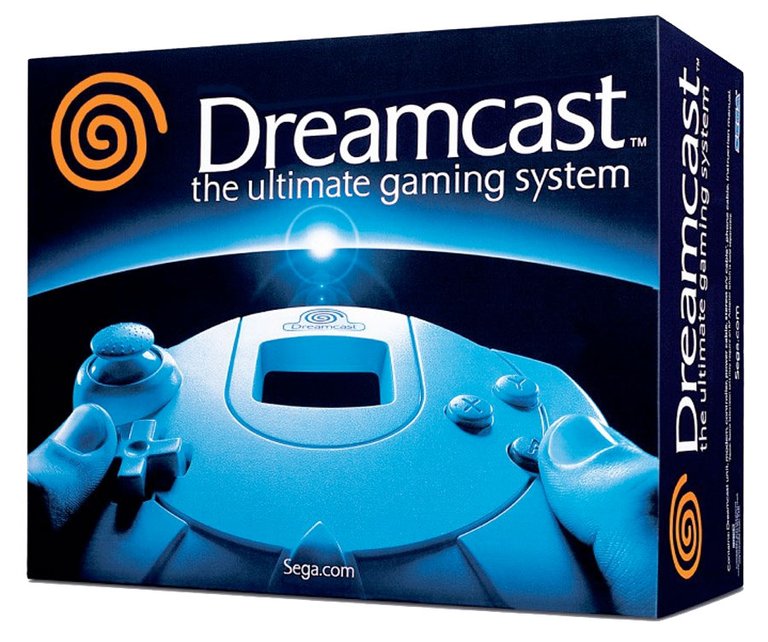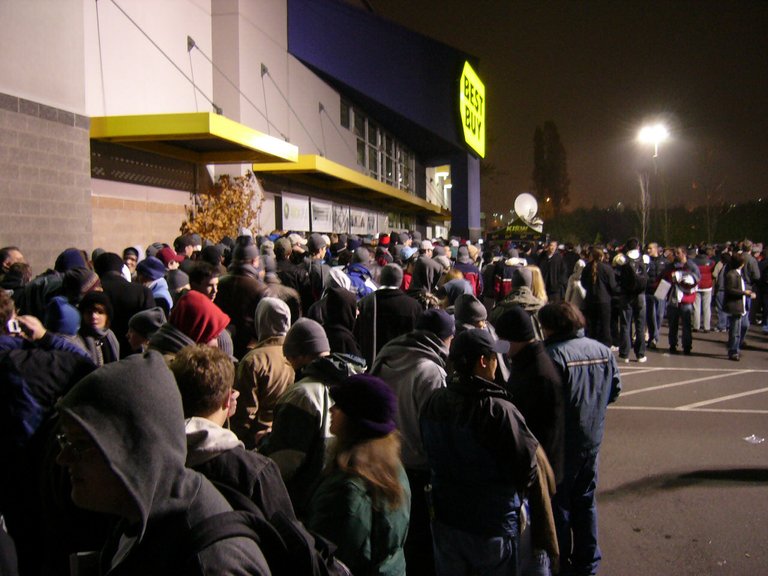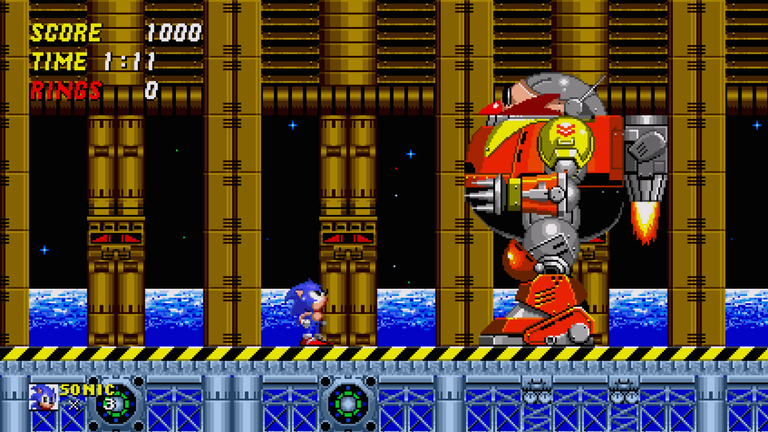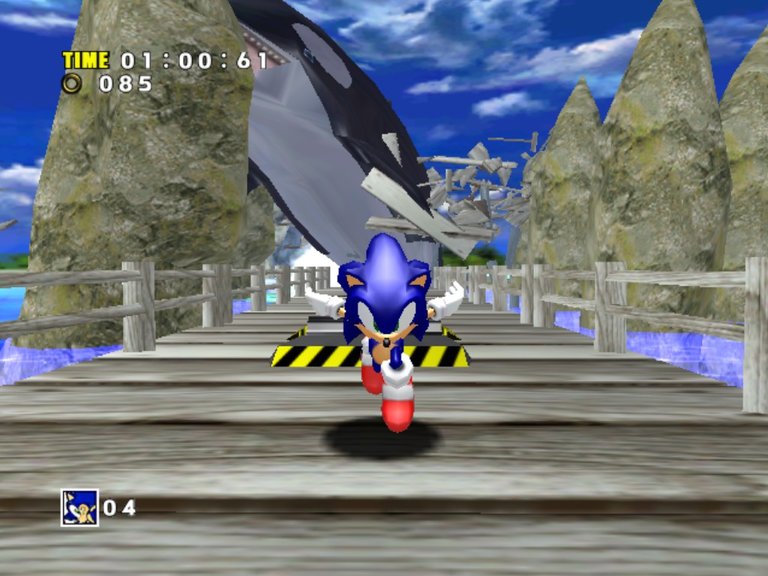Hey I just wanted to share some thoughts on my favorite console growing up. The Dreamcast was the first console I ever owned, in fact I still own my original Dreamcast, and it works!

The Sega Dreamcast was born of a company in trouble. With the exception of the Sega Genesis, Sega’s various experiments through the years had failed…from the 32x add-on to the Sega CD, and the Sega Saturn as well, nothing had ever hit quite right. This necessitated an absolute monster comeback, and if you ask a fan looking back that's exactly what the Sega Dreamcast was. The Dreamcast had a lineup of innovative fun games with incredibly good graphics that people just hadn't seen an equivalent of at the time.
So what killed the Sega Dreamcast?

Here in the United States, Sega fans remember 9-9-99 as not just a day where all of the numbers were the same, but rather the launch date for a real fun machine. From the Sonic titles which though kind of flawed were also very fun, to weird innovative titles like Jet Set Radio and Crazy Taxi, as well as the first Soul Calibur, the Sega Dreamcast introduced astounding graphics. It truly felt like an arcade experience in your living room.

However, if you know where things went, you should probably know that this was also part of the problem. There wasn't really an arcade anymore, people didn't really go to arcades and moreover, people weren't excited about having the arcade in their living room. They were excited about what living room gaming could be. When Tomb Raider hit half a decade earlier, people weren't thinking ‘Wow it's just like the arcade!’ Rather, one of the things they were thinking is how nice it was to sit on the couch and play a game that was at least better-looking than anything they'd ever seen in the arcade. They weren't on a time limit, they could do whatever they wanted. They could take as long as they wanted to play their game and nobody would say, ‘Hey you're hogging it’. Essentially the market was changing. Sega was kind of a company that lived and died in the arcade and when they brought it into the living room, it was a bonus. They started doing well because they were an arcade company that was making their games accessible to people in their homes. And suddenly people were expecting more in depth experiences, and while Sega was able to deliver that they weren't really philosophically thinking, ‘What can we do to be here in a few years’. Rather, Sega was thinking, ‘What can we do to continue what we are doing’ … and these are two fundamentally different questions. Yes they did have a lineup of games like Sonic the Hedgehog, which were primarily enjoyed at home. But even those games retained a lot of the arcade sensibilities with bonuses and high scores and time limits and all of that. It's just a mode of thinking that they could never shake, and I believe that it's fundamentally part of the problem.

Through the 1990s, Sega released twice as many video game systems as everyone else. The Sega Genesis, while the competitor to the Super Nintendo, actually came in 1988, Sega beat Nintendo to 16-bit by a lot. But instead of hunkering down on that and working their butt off, in 1992 they released the Sega CD, an add-on that essentially allowed you to create games on a CD. This gave you the capacity that really nobody had thought of, and it was cool and it allowed you to have CD quality music. Unfortunately only a few people bought it, so they released another add-on in 1994 called the 32x. This was quite the powerhouse. Sony Playstation was also a 32-bit system, so on paper for a lot of people, it was supposedly as powerful. But at the same time, the 32x was another add-on for a system you may not already have owned, so you would have needed to buy the Sega Genesis if you wanted to get into gaming with the 32x. This was a similar problem that the Sega CD had, and then literally one year later they released the Sega Saturn!

The Sega Saturn was again a bit of a 2D powerhouse, and it was able to outperform the Sony Playstation in many respects. However 3D was the direction that videogames were going and although Sega Saturn was indeed capable of that, it didn't do as well as Sony Playstation. Additionally, the Sega Saturn’s programming architecture was often too complex. To expand on the hardware issues, the Saturn also had a problem where Sega launched it early. Sega thought they could compete with the PlayStation by launching the Saturn like six months early without most of the games completed. It was a bad move to say the least, and this string of failures left Sega a bit in the hole. It also created unstable brand recognition, with the perception of Sega as having an unstable platform. Rather, people would wonder what new kooky add-on Sega would release. As it turned out, over the years Sega actually released a lot of very good games, but they were so fragmented in what platform they were on, that the only way to have played all of the quality games was to have bought all of Sega’s hardware. So in the lead-up to the release of the Sega Dreamcast, there wasn't really a massive amount of confidence in Sega.
Sega actually did wait a few years between the release of the Sega Saturn in 1995 and the Dreamcast in 1999, but those four years were generally regarded as a drought. Not a lot of great games were released for the Sega Saturn. Once we started seeing screenshots from the Sega’s next console, it was clear the Sega Saturn couldn’t remotely compete.

Although the Dreamcast’s release didn't exactly come quick, by the time its launch happened, not enough consoles had been produced for the demand. In its lifespan, the Dreamcast sold 10.2 million units, which is not a lot. The PS2, its main competition that came out simply one year after the Dreamcast, sold 155 million units in its lifespan. By the year 2000, Sega had lost four hundred million dollars due to the Dreamcast. The company itself was fundamentally questioning what on earth happened. Sadly, this led to Sega not supporting the Dreamcast very well after about a year after launch even though the Dreamcast was a great system with a ton of incredibly innovative and fun games.

By this time, Sega was basically known as the false start company. They had so many false starts that they were in serious financial trouble. Because of this, Sega exited the console market full stop and became simply a software company.
And some could say a lot of their habits never died. Sega had always been an incredibly creative company, but never been one that valued consistency. Because Sega spent an entire decade making sure that everyone thought that about them, the Dreamcast was always going to fail. It's sad because it's an awesome system with some of the most fun games that have ever been made, including one of my favorites to this day Jet Set Radio and one of the best fighting games I can remember, Power Stone. Unfortunately these were sadly attached to a company that had been mismanaged for a long time. To this day, I hope that Sega recaptures the lightning in a bottle they experience with the Dreamcast. Sadly, there will never be a Dreamcast 2 - but I don't know if it's even that important anymore in today’s gaming world. Still, I certainly miss the time when Sega released tons of great games.
What do you think- leave a comment! Did you own a Sega Dreamcast?
I'm a fan sega (I really like their arcade game: Daytona, Sega Rally, Virtual Cop etc) and I used to own sega saturn. I almost bought dreamcast (was saving money for it) but then I realized they stop producing games for the system.
I still have my Genesis, and I had a Saturn at one point.
I loved Dreamcast. Can't remember the names, but the boxing game and the fighting game where characters could move in 3-d and there were powerups!!
Dreamcast was so awesome as well as the homebrew community that spawned with it!
What I personally believe was the dreamcast killer was the fact that no mod chip was needed for piracy on it. Low software sales destroyed it.